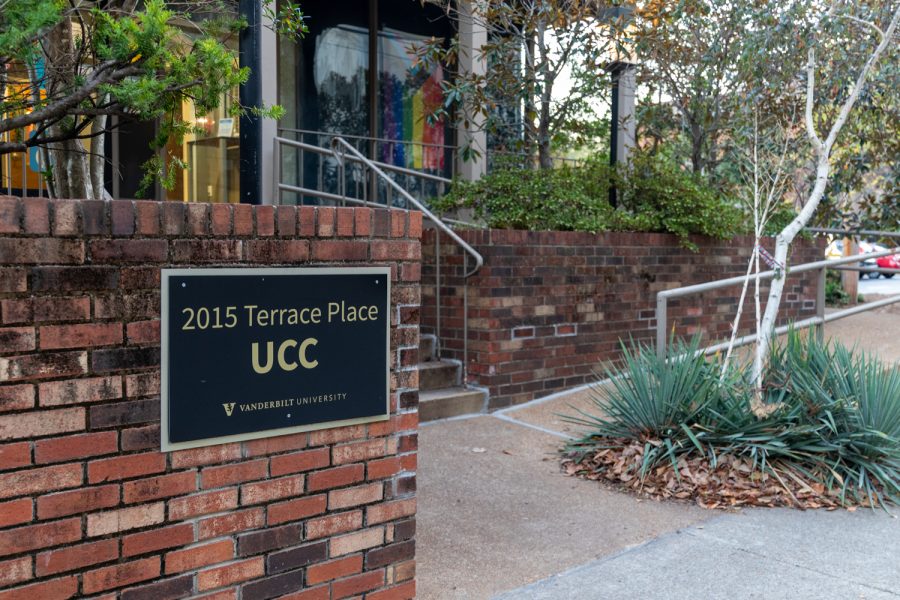U.S. News & World Report released the latest iteration of its college and university rankings on Sept. 18. Within hours, Chancellor Daniel Diermeier and Provost C. Cybele Raver emailed all students, faculty and alumni a concerning tantrum outlining exactly why Vanderbilt had dropped a few places in this arbitrary ranking. They followed up with a more detailed statement about a week later. On its face, I felt much the same about their letters to alumni that I do about the rankings: a fleeting second of interest followed by deep apathy. Quite simply put — who cares?
After rereading the chancellor and provost’s response, however, I found myself getting fired up, though not for the reasons I suspect the authors intended. Why, I asked, were two leaders of a top private research university spending institutional resources poking holes in the methodology of an arbitrary ranking system? There are surely better ways for two influential and talented people to critique the landscape of higher education and college rankings.
As someone who enjoyed my time at Vanderbilt, reading the email felt akin to listening to a distant relative’s unsolicited rant over a holiday meal. I felt unsettled and mostly embarrassed to be affiliated with the messaging. And more importantly, their criticisms of the ranking were misguided. Rather than articulating how Vanderbilt could better serve its students, Diermeier and Raver instead hyper-fixated on specific reasons they believe Vanderbilt was slighted by U.S. News & World Report.
Instead of taking a defensive stance against ranking methodology, the university would be better served by using this opportunity to reflect on how it can improve economic mobility, academic achievement and the campus community as a whole.
“U.S. News has made significant methodological changes that reduce the emphasis on metrics that measure faculty and student quality—and that increase the emphasis on social mobility, which they measure using incomplete and misleading data,” Diermeier and Raver’s email reads.
In their message, the chancellor and provost specifically bemoan the fact that Vanderbilt was dinged for its smaller share, relative to other institutions, of undergraduates receiving Pell Grants. This gripe, quite simply put, is a Vanderbilt problem, not a U.S. News problem. Other institutions with comparable Pell recipient numbers like Princeton and Stanford are ranked higher than Vanderbilt. Some schools, like Duke, are higher ranked but have a smaller proportion of Pell recipients. It does not seem that Vanderbilt’s proportion alone is holding it back. The real issue here is viewing Pell recipient numbers through the lens of college rankings. If we move beyond a rankings obsession, we arrive at a much more important framing: What is Vanderbilt doing to increase its socioeconomic diversity, and are those initiatives working? As of 2019, Vanderbilt enrolls more students from the top 1% than it does from the bottom 60% of family incomes. There is quite a bit of room left for improvement.
“Measuring social mobility is an important consideration,” Diermeier and Raver write. “But it is deeply misleading for U.S. News to commingle this policy concern with measures of education quality.”
Beyond attracting students from diverse socioeconomic backgrounds, any university has a responsibility to set up all students to thrive within and beyond the institution. The publication now assigns greater weight to tracking outcomes of lower-income students. If higher education is truly a vehicle for social change and economic mobility, this metric is a reasonable, if imperfect, measure of educational quality. Hence, it was particularly upsetting to see how Vanderbilt’s leaders discussed how U.S. News & World Report’s inclusion of outcome data related to Pell Grant recipients.
The chancellor and provost, however, argue that, by focusing on the outcomes of federal aid recipients, U.S. News & World Report is relying on a biased sample. According to the email, about one-third of Vanderbilt’s graduates receive federal aid, and Vanderbilt’s financial aid precludes students from seeking federal support. Diermeier and Raver contend that the U.S. News ranking places “no value on the career outcomes” of any of Vanderbilt’s students not receiving federal aid. This argument misses the spirit of the change: ensuring universities are doling out benefits equally across socioeconomic status. I will indulge the chancellor and provost on the rankings front for a moment — if they care so deeply about Vanderbilt’s position on this list, they should work to meet changing ranking standards by offering robust support for all students, especially those receiving or eligible for federal aid. If these standards are better representing lower-income students, that is a benefit of the rankings system I will gladly embrace. Unfortunately, the tone of the email suggests that our top administrators are unhappy that the outcomes of a crucial subset of Vanderbilt’s student body are receiving warranted attention.
I would have loved to read from Diermeier and Raver more about how Vanderbilt is going to support Pell recipients moving forward. Perhaps there are opportunities through its newly-minted division, Career Advancement and Engagement, or through its graduation requirement, Immersion, to enhance outcomes for the most historically disadvantaged. I would like to hope that Vanderbilt’s leaders are thinking through these complicated topics, but their rankings-obsessed message unfortunately suggests otherwise.
In addition to harping on the new prioritization of economic mobility measures in rankings, Diermeier and Raver also criticize the lack of importance given to measures of “faculty and student quality.” I’m sure, for example, it is important to have faculty with terminal degrees teaching, which Vanderbilt has long been capable of pulling off. It is not clear, though, if this metric even assesses instructional quality. Perhaps U.S. News & World Report, in an entirely unintentional way, can push Vanderbilt to think about the quality of its education beyond just the number of PhDs teaching courses.
Instead of worrying about artificial prestige manufactured by one publication, Vanderbilt should look inward to see what current students find engaging in instructors. It could look outward to hear from prospective students about what would drive them to attend Vanderbilt.
Similarly, rather than quibbling with a national publication about including VUMC’s financial resources in a calculator, Diermeier and Raver could have offered insight into how Vanderbilt intends to address the more reasonable features of the rankings, like the focus on supporting Pell Grant recipients. In a follow-up email, Vanderbilt’s leaders did go over some of the ways the university is trying to recruit students from different backgrounds. Even in this second message, though, the chancellor and provost are overly focused on the issue of rankings. Their premise is essentially that Vanderbilt is not getting credit for the work it is doing. I agree with their final point that “the annual ritual of the U.S. News rankings release might not end anytime soon. But universities can no longer in good conscience stay silent about it.” It would have been more powerful, however, if Vanderbilt had issued this statement at its rankings peak and not after falling a few spots. Now, Diermeier and Raver’s messaging reads as embarrassing retaliation rather than valuable critique.
Vanderbilt is an exceptional institution that admits bright, eager students. In my roles as a PhD student, instructor and staff member at Vanderbilt, I met hundreds of the talented undergraduates, graduate students and postdocs that Vanderbilt attracts. A drop of five places in the rankings feels trivial. There are hundreds of colleges and universities in the country and Vanderbilt still placed within the top 20. One response is a simple shrug and a “Who cares?” Keeping with Diermeier’s own stated mantra, though, Vanderbilt, dare to grow.













